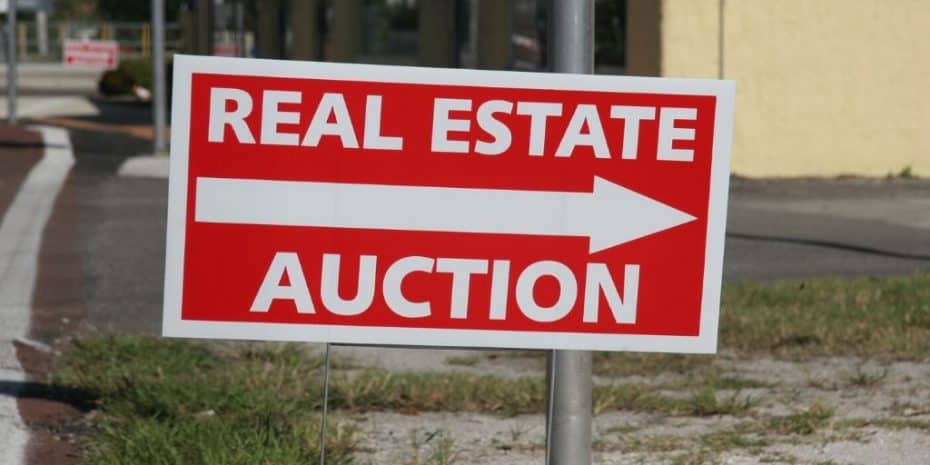What is Foreclosure?
REtipster does not provide legal advice. The information in this article can be impacted by many unique variables. Always consult with a qualified legal professional before taking action.
Foreclosure Explained
In most instances, the foreclosure process is initiated by a lender who has loaned money for the purchase or refinancing of a property.
Other secured parties such as municipalities and homeowners’ associations (HOAs) may also have grounds to initiate foreclosure proceedings if real estate taxes or property assessments remain unpaid.
When a borrower does not make payments in accordance with the terms agreed upon with the lender or if the assessments for HOA fees or real estate taxes remain unpaid, a default can be declared and the property can be placed into the foreclosure process.
Once the threshold for delinquent payments has been met, the property owner will be notified of the foreclosure complaint either by registered mail or constructive notice in the newspaper.
The majority of foreclosures are performed by lenders against homeowners who default on their mortgage payments, but foreclosures can be initiated against commercial property as well.
Real estate law is governed by the state in which the property is located. This applies not only to the requirements for the purchase and deeding of property, but also to the laws regarding foreclosure, its processes, procedures, and requirements for notices.
RELATED: Foreclosure.com Review: How Can It Help Real Estate Investors?
The Foreclosure Process
During the initial period of default, the lender or lienholder must send a written notice of default that spells out the borrower’s rights and privileges, while at the same time notifying them of the amounts they owe in order to cure the default, and other information as required by state law, be it the Judicial or Non-Judicial Foreclosure process.
Judicial Foreclosure
In a judicial state, the borrower executes a mortgage in favor of the lender. This mortgage is a lien that is recorded on the title to the property. This helps ensure the borrower will make their loan payments because they will face the threat of losing the property to foreclosure if they do not.
In a judicial foreclosure, in order to perfect its interest in the property, the foreclosing party must sue the debtor in court before it can take possession of the property. This process can be lengthy. The borrower must be in default on the loan for a set period of time as required by the state laws. Typically, traditional residential mortgages call for three or more months of delinquency before any foreclosure action may be taken.
- Default Judgment: In most instances, when a judge issues a default judgment the property is turned over to an officer of the court, usually the county sheriff, to be sold. The sheriff then holds an auction of the property where interested parties can bid. If no acceptable bid is made on the property, the title will pass to the lender. There is a robust market in foreclosed properties and frequently real estate investors, having researched the property and determined that it meets their investment criteria, will attend the auction and bid to purchase the property. Proceeds from the sale of the property will go to the creditor(s) who are named in the default judgment. Some sheriff’s sales still take place in the courthouse or on the steps of the county courthouse, however in more recent years, many of these auctions have been held online.
- Timeline for Judicial Foreclosure: County court calendars are often jammed up with petitions from lenders and borrowers, which stretches out the timeline for a foreclosure. Normally, a judicial foreclosure cannot be completed in less than six months, and, in states that have a busy calendar of foreclosure suits, it can take as long as three or four years to complete. In the event that the property owner disputes the lender’s foreclosure action or files for bankruptcy protection, the process can take much longer than that.
Non-Judicial Foreclosure
Roughly half the states in the U.S. have laws that do not call for a lawsuit by the lender to perfect its interest in a property. These are called non-judicial states. In non-judicial states, title to the property is held by a neutral third party, or trustee, until the loan has been paid off, at which time the title reverts to the property owner.
- Deed of Trust: In non-judicial states, borrowers sign what is called a deed of trust, or trust deed when the closing funds are borrowed (Mortgages with the Power of Sale clause are sometimes used). This instrument is an acknowledgment of the lender’s interest in the property with the understanding that the trustee will be instructed to deed the property to the lender if it declares a default.
- Timeline for Non-Judicial Foreclosure: In non-judicial states, the timeline for foreclosure is much shorter than in judicial states. Non-judicial foreclosures are handled between the foreclosing party and the trustee in the property. The trustee holds the title to the property. When a lender can show the trustee that all the provisions required to complete the foreclosure have been met, it can demand that the trustee deed the property to the lender. Eliminating the need to secure court approval (as required in judicial states) can shorten the timeline for foreclosure substantially. Many non-judicial foreclosures can be completed in as little as forty-five days after the default has occurred.
Right of Redemption
Certain states provide for the right of redemption. This allows a period of time after the foreclosure is complete for the borrower to redeem the property. Any real estate investor interested in finding an opportunity for a good deal on foreclosure properties should be aware of the state’s right of redemption policies. Some states allow the borrower up to a year after the foreclosure to redeem the property. These statutes benefit the property owner but are a disadvantage to the lender, and throw off the timing for completing the transfer of the property title. For more information regarding state laws, click here.
How to Find Foreclosed Properties
Notices of foreclosure are posted in the county records for the public to see. This is done in order to put on notice lien holders that may have an interest in the property.
If it is a first mortgage that is being foreclosed, then junior lien holders will want to know about this so they can take steps to protect their interest in the property. If a junior lien that is being foreclosed (a lien that was recorded after the first mortgage or deed of trust), then the first lienholder will want to know that. Often a default on a junior lien creates an automatic default on a superior lien. This is something the primary lender will want to know so it can take steps to protect its own interests.
For the person interested in buying foreclosed properties as an investment and is willing to comb through the foreclosure opportunities, a check of foreclosure notices in the county records can help. However, today’s sophisticated search tools on the Internet create a shortcut to that information by sorting properties by location from state, to county, to city, all the way down to neighborhoods and zip codes. Websites such as foreclosure.com have all the groundwork and sorting already done for visitors.
Buying a Foreclosure Property
Foreclosure properties are usually sold through public auctions in the county where the property is located.
Notices of sale are posted publicly in local newspapers and on the Internet.
The traditional way of buying foreclosed properties is to attend the public auction and bid on it. Bidders are cautioned that the auction rules will specify how the bidding is to be done, how much money must be paid at the winning of the bid, and the timeframe for bringing the cash to complete the sale.
The public auction, often known as a Sheriff Sale, requires strict adherence to their rules. Failure to complete the transaction in accordance with the rules of the auction can lead to a default on the sale. That will free the property up for sale to another party and the loss of any down payments made at the time of the bidding.
Foreclosure.com is an online marketplace where you can uncover many of the most valuable, profit-rich distressed real estate deals in your area… before they even hit the market.










